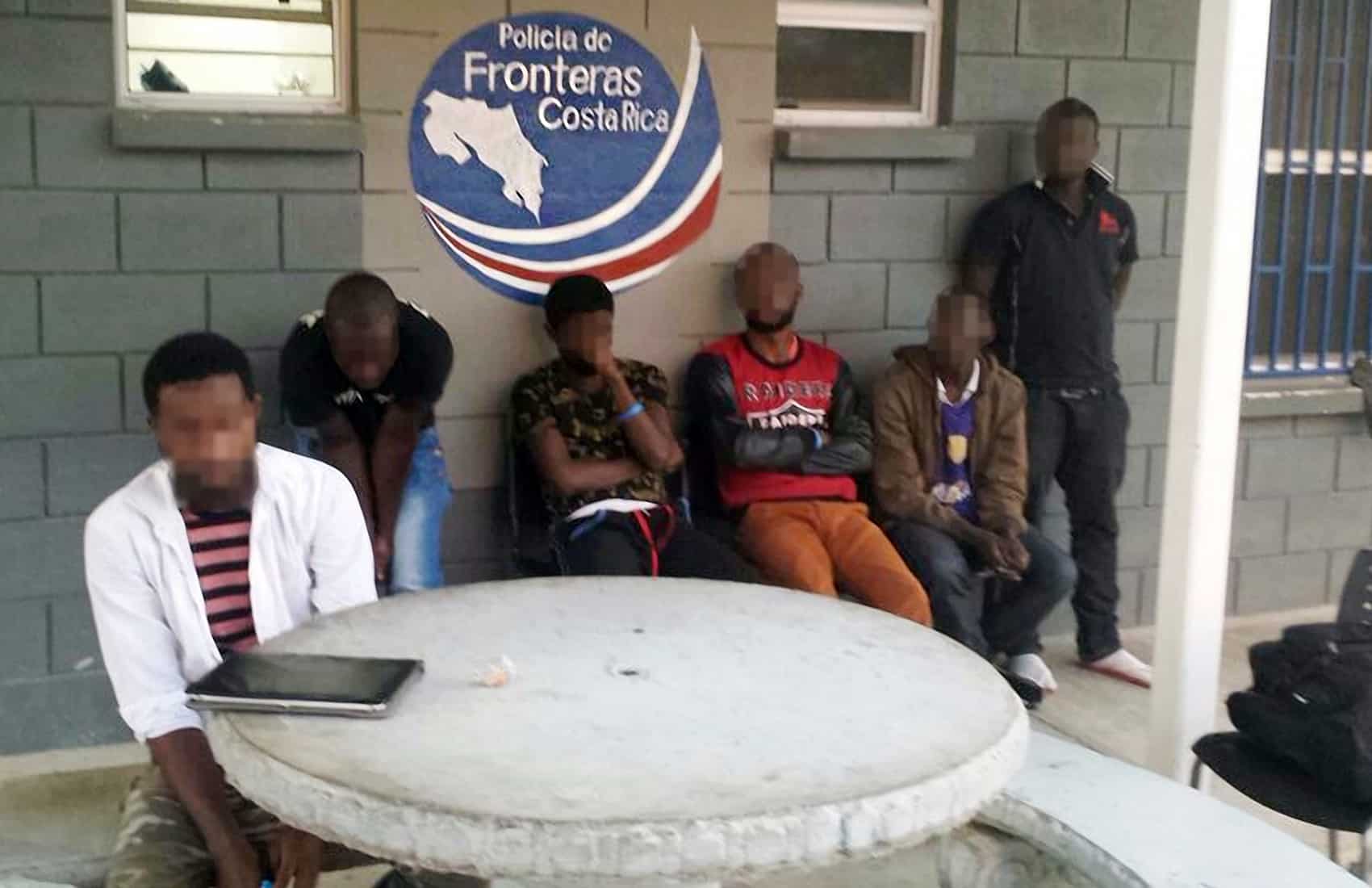Recent apprehensions of large groups of undocumented migrants plus the continued arrival of Cuban citizens just across the border in Panama have prompted Costa Rican authorities to tighten border security.
Some 75 Border Police officers normally patrol the southern border at Paso Canoas, but on Thursday the Public Security Ministry said it was sending 75 National Police officers to increase patrols in the area.
In addition, immigration officials said they will increase the number of Immigration Police officers at customs offices.
Public Security Ministry’s spokesman Carlos Hidalgo said the continuous presence of migrant groups entering the country without valid migration status forced security officials to double surveillance by air, land and sea.
Police officers this week alone detained 116 migrants from Niger, Ghana, Ivory Coast and Afghanistan, among other countries.
Of these, 57 submitted formal applications for refugee status, but all were denied, according to the Immigration Administration.
National Police checkpoints this week in Costa Rica’s Southern Zone also led to the detention of some 50 migrants from Cuba and Ecuador who entered the country without a visa. They all were returned to Panama.
The government is currently on alert because of the agglomeration of more than one thousand Cubans at the Panama-Costa Rica border. President Luis Guillermo Solís has said repeatedly since December that the country will not accept more migrants from that island nation after Costa Rica concluded an airlift that sent more than 5,000 Cubans stranded here on their way to the U.S.
Between November and March, Costa Rica granted nearly 8,000 temporary visas to Cubans. In December, Solís said no more temporary visas would be issued because the country lacked the capacity to provide migrants with humanitarian assistance.
Starting in November, government agencies, international immigration authorities and dozens of families, community groups and religious organizations provided food and shelter for the Cuban migrants. Most, if not all, have now left the country.






